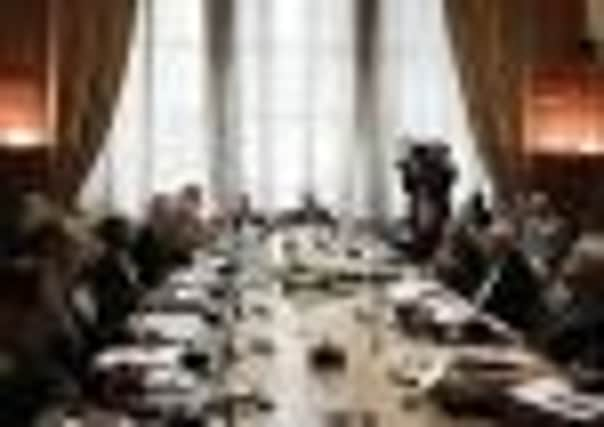UN hits out at China and Russia over Syria violence


Russia and China on 4 February vetoed a European-Arab draft resolution condemning the crackdown and endorsing an Arab League plan for the Syrian leader to step aside.
“The failure of the security council to agree on firm collective action appears to have emboldened the Syrian government to launch an all-out assault in an effort to crush dissent with overwhelming force,” the High Commissioner for Human Rights, Navi Pillay, told the UN General Assembly yesterday.
Advertisement
Hide AdAdvertisement
Hide Ad“I am particularly appalled by the ongoing onslaught on Homs,” she said.
Ms Pillay stepped to the podium after a lengthy failed attempt by Syria to prevent her appearance. Syria’s UN Ambassador Bashar Ja’afari had argued yesterday’s meeting was illegal because the General Assembly resolution establishing the Geneva-based Human Rights Council only allows the human rights chief to report once during its session.
An Arab League proposal made on Sunday to boost support for the uprising and to send in foreign peacekeepers has also drawn a guarded international response even as Syrian forces attacked Homs and other cities.
World powers digested the Arab League proposals from a meeting in Cairo which called for a joint UN-Arab peacekeeping force for Syria and pledged to provide political and material aid to the opposition.
In Moscow, foreign minister Sergei Lavrov made clear Russia would not support the peace plan unless there was a halt to violence by both government forces and their armed opponents.
“The tragedy is that the armed groups that are confronting the forces of the regime are not subordinate to anyone and are not under control,” Mr Lavrov said.
China backed what it termed the Arab League’s “mediation” but offered no clear sign of support for the peacekeeper call.
The United States and Europe are reluctant to get dragged in militarily, fearing that given Syria’s position in the Middle East’s religious, ethnic and political faultlines, this would be more risky and complicated than the Nato-led air support that helped Libyan rebels remove Muammar Gaddafi last year.
Advertisement
Hide AdAdvertisement
Hide AdForeign Secretary William Hague said any peacekeeping troops should come from non-Western countries: “I don’t see the way forward in Syria as being Western boots on the ground in any form, including in any peacekeeping form.”
A peacekeeping mission would in any case require the co-operation of Syria, which dismissed the League’s resolution.
The fragmented nature of the opposition to President Assad, who is from the Alawite minority in the mostly Sunni Muslim country, is also a problem for those keen on political change in Syria.
The Arab League effort also highlighted regional rivalries.
Its moves have been driven by Saudi Arabia and other Sunni-ruled Gulf monarchies who have long resented Mr Assad’s close ties to Shiite regional rival Iran.